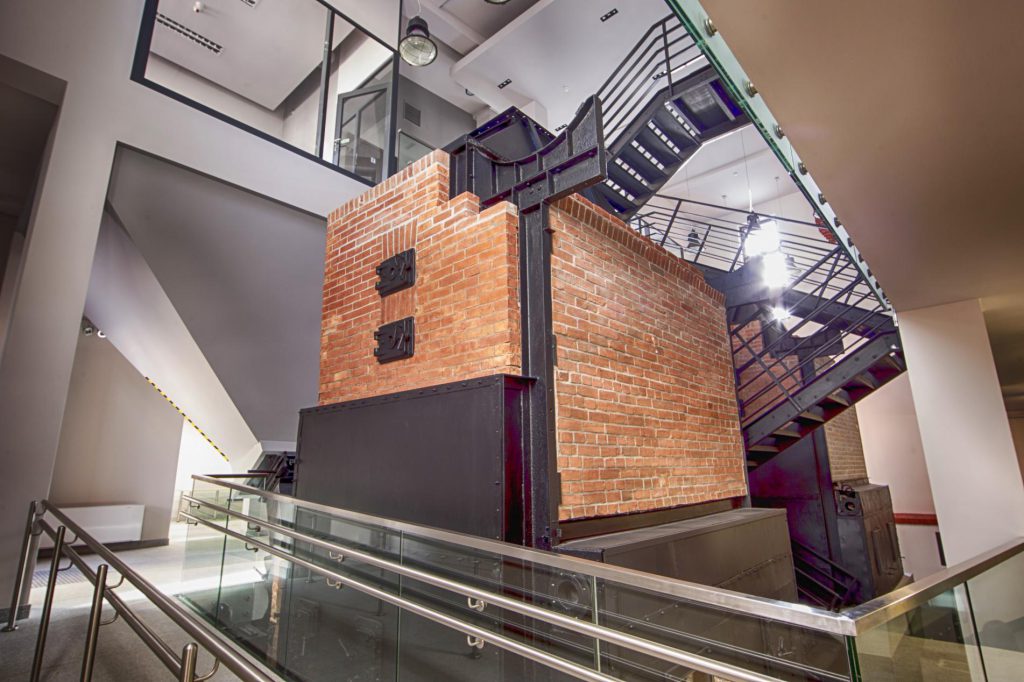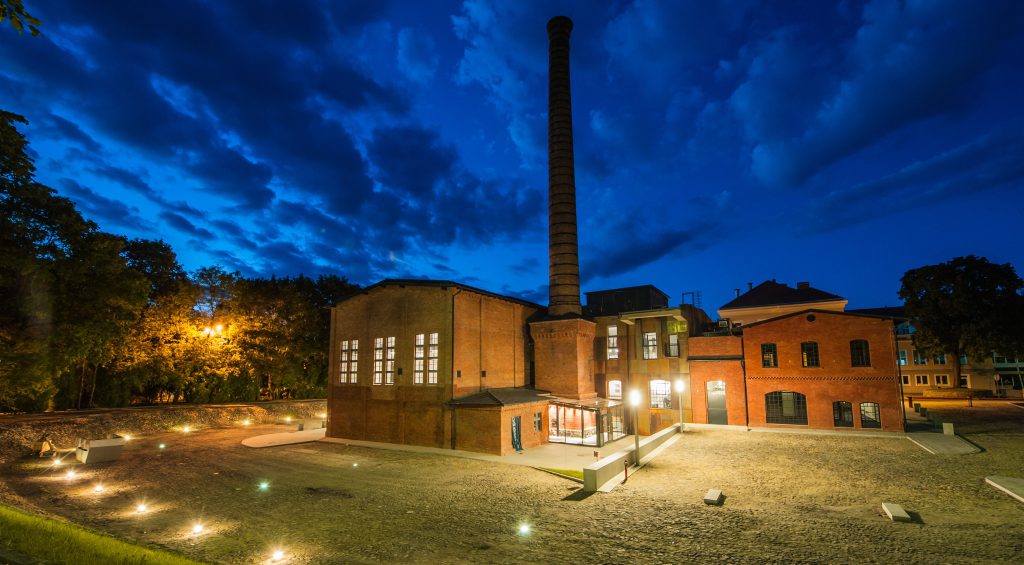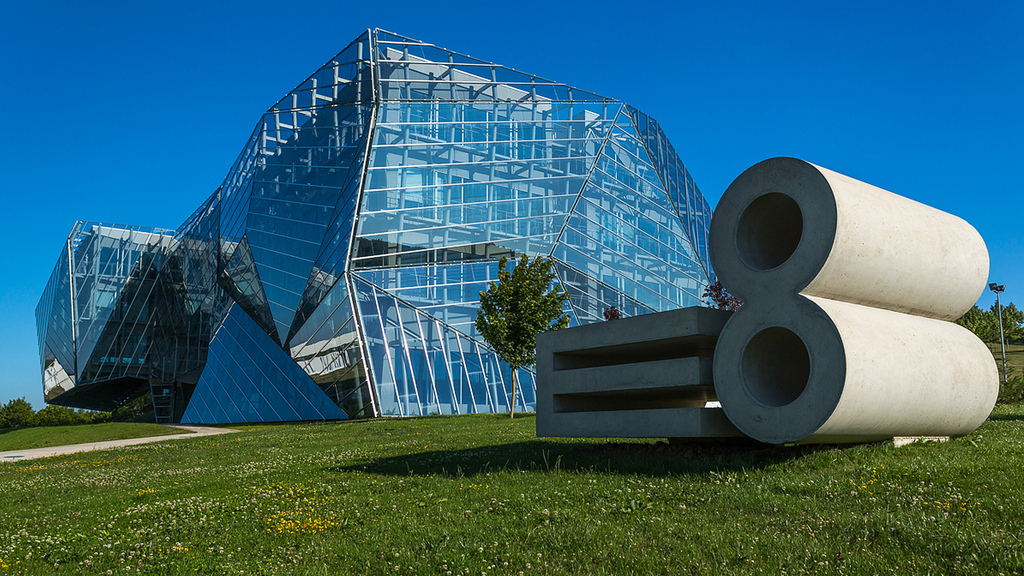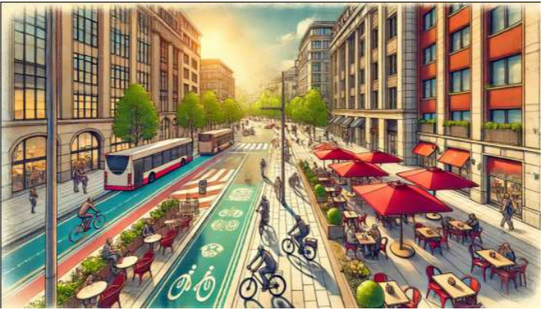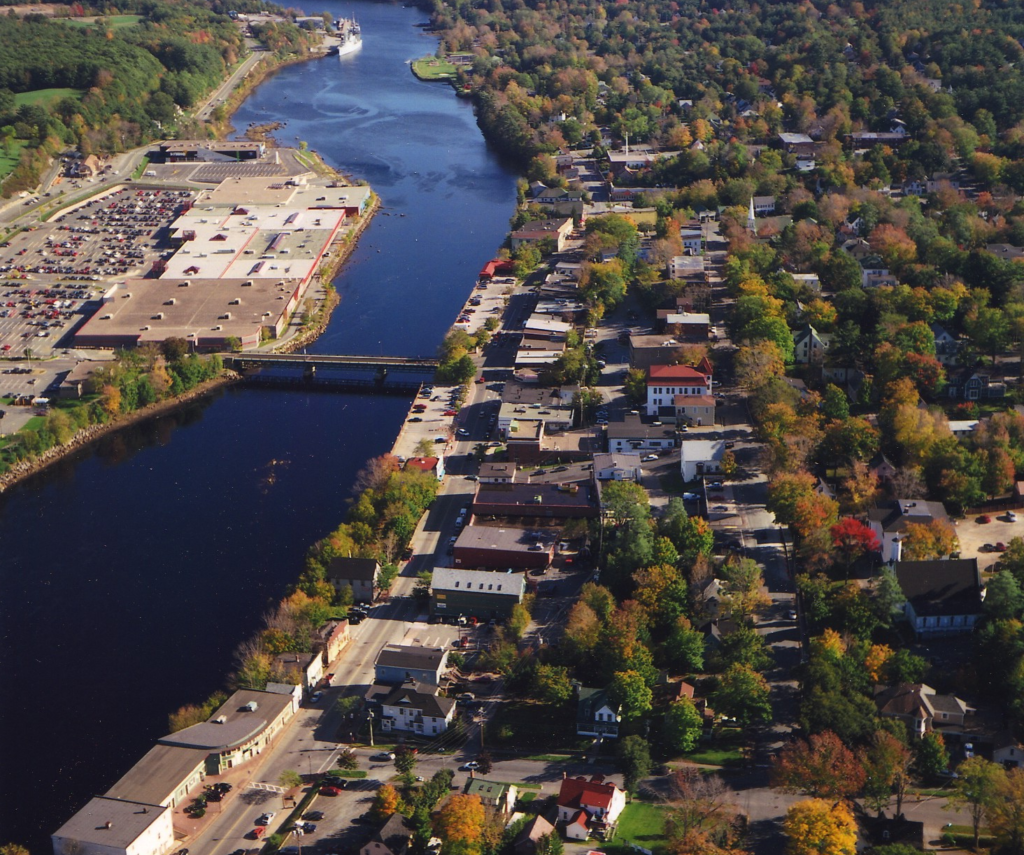Olsztyn is the biggest city and administrative centre of Warmia-Mazury Province, in the north-east of Poland.
It covers 87.9 km2, has 175,000 inhabitants, and is home to 4 universities with a total student population of 45,000.
The city’s greatest asset is its unique situation, amid lakes and forests, with one of the largest urban parks in Europe. So Olsztyn justifiably describes itself as a garden city.
A city which is working to address climate change at the urban level:
Many cities in the Network are familiar with the problem of urban heat islands.
Olsztyn hopes to reduce the impact of this phenomenon through a climate change adaptation plan. A number of large-scale measures have, therefore, been introduced: revegetation, water retention tanks, building insulation, solar panels, transport…
One of its objectives is to develop nature in the city by revitalising the 9 parks and squares in and around the city. The quality of the green spaces and the introduction of biodiversity are the most important aspects of this.
The “nature lesson”, which is the social dimension of the programme, is designed to raise residents’ awareness of climate change. The city centre is most affected by the heat island phenomenon, so it is there that the residents, NGOs and local politicians are working together to revegetate the area.
As everyone knows, trees are the most effective way of reducing the temperature. That’s why Olsztyn intends to create shade along all its pedestrian routes by planting naturally spreading trees such as standard maples and lime trees, or field maples where the roads are narrower. This is the “Green pavements” project. If it’s not possible to plant a tree, a planter or small green space is used to enhance the street and, most importantly, the quality of life.
These green spaces are being turned into flowery meadows, as requested by residents as part of Olsztyn’s participatory budget. In addition to this, lawns are cut less frequently to avoid drought.
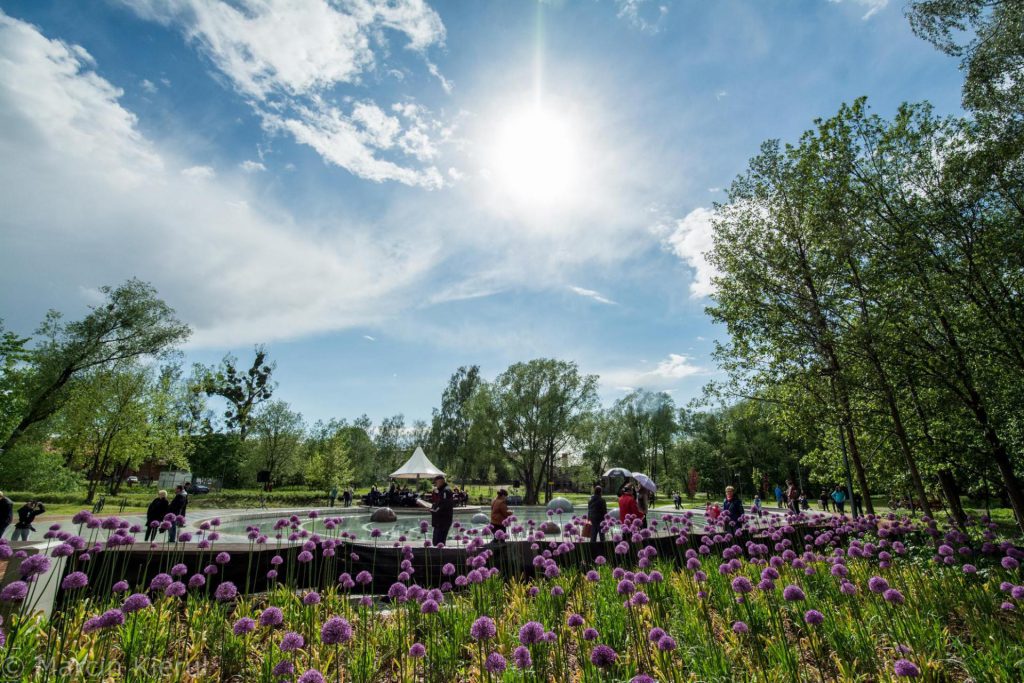
The microclimate of cities is affected by the humidity of the air, which can be changed by the use of natural and artificial water storage facilities. Collecting and storing rainwater is hugely important in preventing both drought and flooding and, of course, for watering plants. Olsztyn is, therefore, working to improve its storm sewer system and install new water storage facilities to increase the volume of water available for use in the event of a fire, for watering the city’s plants and for street cleaning. These rainwater “management system” and “system expansion” projects in the city of Olsztyn are co-financed by EU funding (“Infrastructure and Environment” Operational Programme 2014-2021).
Among its efforts to tackle heat islands effectively, the city has not only made its streets greener and installed water storage facilities, but it has also thermo-modernised its public buildings. In addition to external insulation to reduce the temperature, photovoltaic and solar panels are currently being installed and street lamps are being replaced with LED lamps. The thermal energy captured is transferred to the grid or used internally, so sunshine is used as a source of energy without heating up buildings. Not only do the buildings (such as the city’s nursery schools, primary schools and one high school) require less heating, but the whole city is benefitting, as this is helping to reduce heat islands.
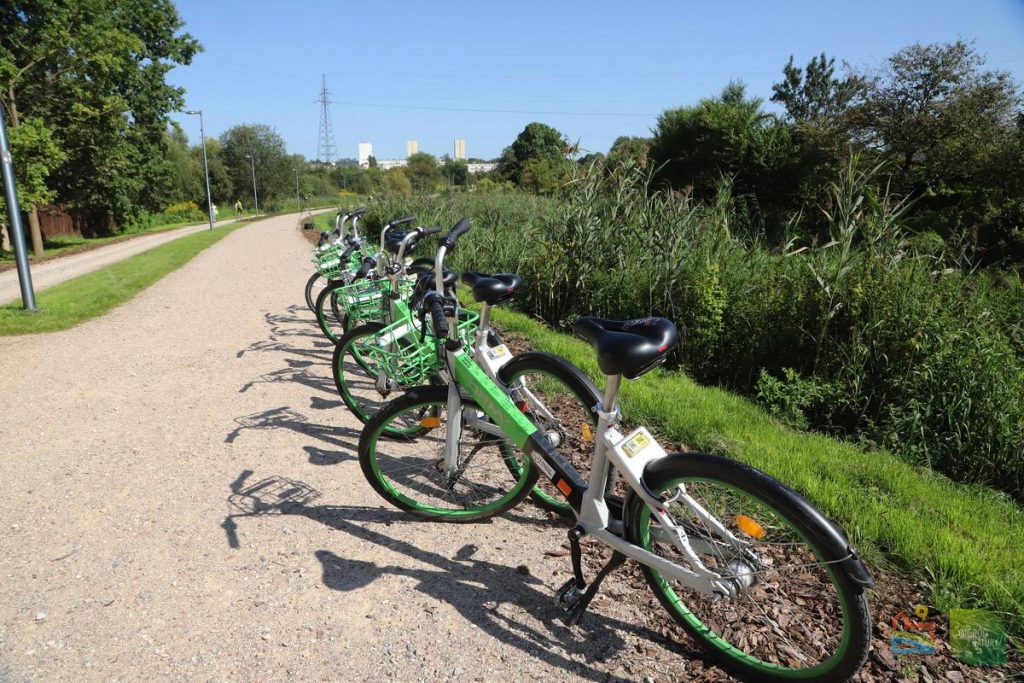
Finally, another aspect of the effort to reduce heat islands is controlling air pollution by reducing reliance on the car in the city and developing low-emission forms of transport. In 2015, Olsztyn brought back its trams, which it has abandoned 50 years earlier. Various cycle paths are currently under construction, including the “Lynostrada” riverside path which passes right through the city. The paths are being created with funds from the participatory budget, as requested by the residents. This central path will form the spine of the cycle path network, which will continue to expand because the City Council has decided that every road built or redesigned must include a cycle lane. Olsztyn currently boasts more than 100 kilometres of cycle paths.
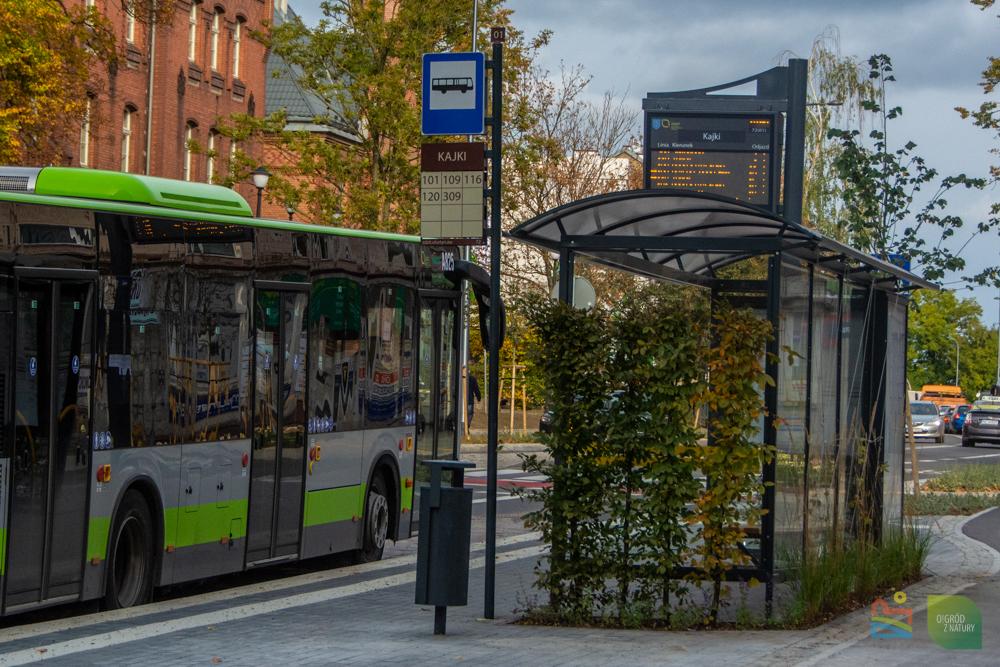
A city of innovation:
To revive the economy and create innovative solutions to current problems, Olsztyn Science and Technology Park (OPNT) is currently carrying out a number of projects:
◦ Startup Heroes : a Platform for New Ideas: the aim of the project is to create conditions conducive to the creation and development of innovative companies in the fields of ICT, eco-energy and food in the Warmia-Mazury region. The platform will support 132 new businesses which will have access to a range of services provided by experts in the fields of law, accounting, tax and marketing and also technical and technological assistance. In addition, the start-up will have a co-working space, the opportunity to take part in workshops and training in public speaking and sales pitching, the preparation of presentations and opportunities to buy market services. Each start-up is assigned a supervisor – a manager whose job it is to ensure that the business incubation process unfolds smoothly.
◦ Warmia-Mazury Startup Incubator : the aim of this project carried out by the OPNT in collaboration with the Ełk Science and Technology Park, the business incubator in Biskupiec and the Warmia-Mazury Regional Development Agency is to enable 53 innovative SMEs to reach independent market operation capability, through the implementation of a business incubation programme designed to provide SMEs with the services they need to operate continuously and specialised services in the area of product and service development, as well as strengthening their market position in 4 innovation centres. The businesses will be able to access basic services (infrastructure, legal, accounting, ICT), specialised services (individual development plan), training (business model creation, team management), an individualised package (guidance on developing brand identity, developing product design, finding users), group mentoring, opportunities to meet potential investors and networking activities.
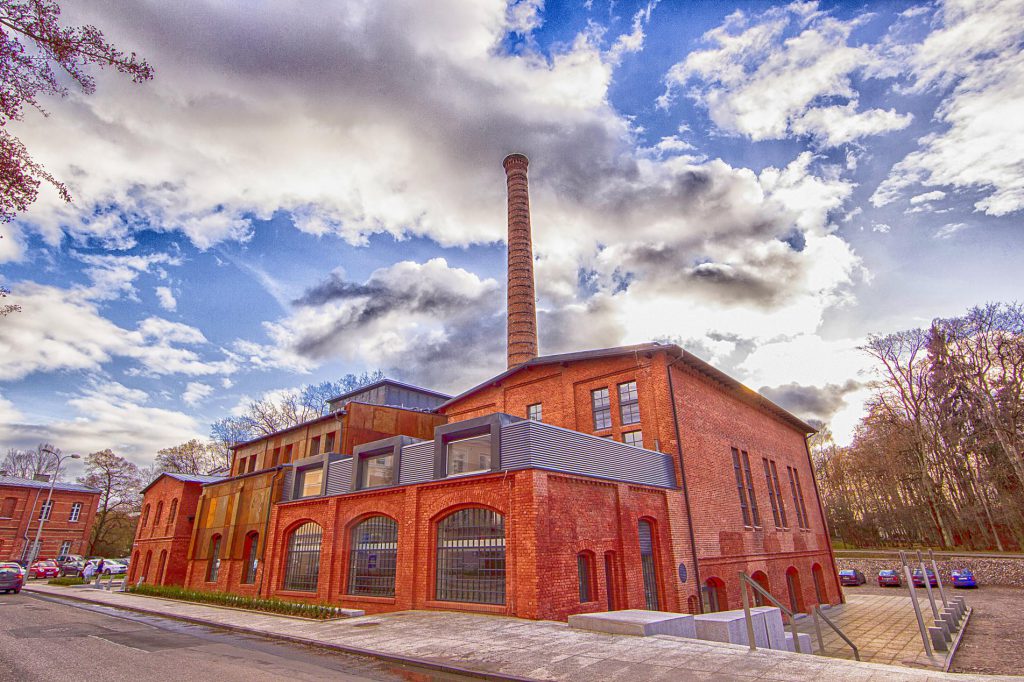
Alongside all of this, the University of Warmia and Mazury is currently developing 3 projects:
- Innovation Incubator 2.0 : the aim of the project is to launch and reinforce cooperation between the scientific and economic communities, including finding bodies interested in implementing the results of scientific research and development work;
- Innovation in high-quality food technology : the aim is to boost the commercialisation of UWM’s research and development work through investment in infrastructure and the conduct of highly specialised research which takes into account the needs of the market. The project will involve the creation and equipping of 16 laboratories;
- The Consortium for Environmental Research and Innovative Food Technology for Quality of Life EnFoodLife : the aim of the project is to provide specialised laboratory research equipment in the UWM’s newly built and modernised facilities in 6 faculties; the project will help to boost the economic potential of the whole region thanks to a higher proportion of research and development spending and better tailoring of human resources to the needs of the market.
